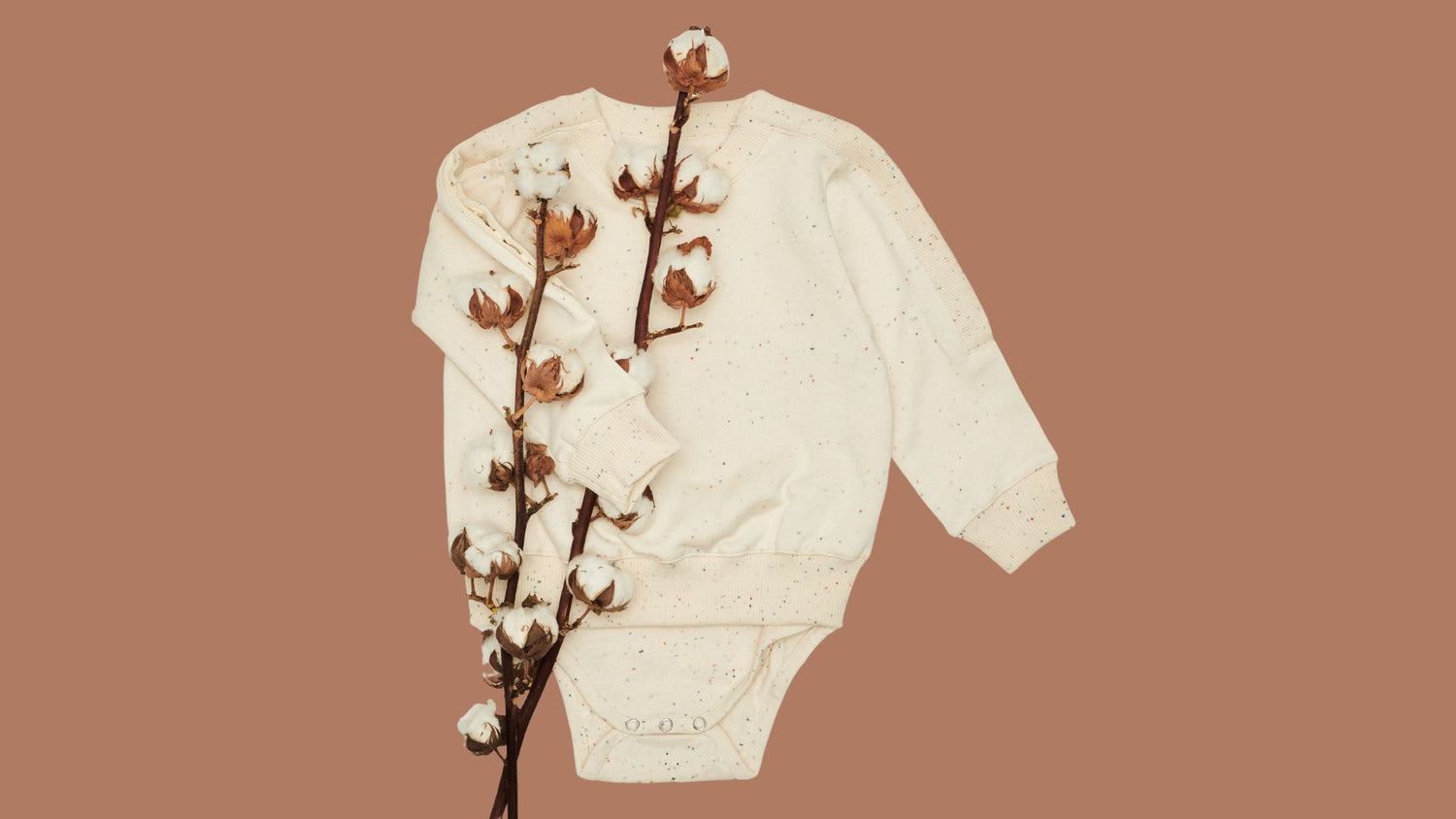For our adaptive clothing, we at Wombly adaptive kidswear use fabrics made of soft and elastic organic cotton. It is particularly robust, comfortable to wear and extremely skin-friendly. It also has many other advantages that go beyond comfort. We will explain to you why we explicitly use organic cotton to produce our clothing and how you can best care for it.
Comfortable, sustainable and fair
Organic cotton is grown according to strict ecological standards. In contrast to conventional cotton, the use of genetically modified seeds is prohibited in the production of organic cotton. Only natural seeds are allowed. Pesticides and chemical fertilizers are completely avoided during cultivation. Instead, plant manure and compost are used, which increases the humus content of the soil and allows more CO2 and water to be stored.
The crop yield is lower compared to conventional cotton, so organic cotton is more expensive. However, not using chemicals is a blessing for nature, as it means that other plants and creatures can survive in the cotton fields and in the surrounding area. In addition, no dangerous synthetic pesticides seep into the groundwater and local farmers do not come into contact with toxins on a daily basis. For you and your child, the absence of pesticides and chemicals means that clothing made from organic cotton is particularly gentle on the skin. Fabrics made from organic cotton do not cause any allergies or skin irritations and are therefore particularly suitable for children whose skin is more sensitive.
We at Wombly adaptive kidswear are convinced of the advantages of organic cotton as it provides protection vo< /span>n man and nature stands. When purchasing the fabrics, we make sure that they come from organic farms in Europe and Turkey that offer fair working conditions and wages. Because a sustainable and fair creation process for our clothing is a matter close to our hearts and the trend shows that more and more consumers are choosing fair fashion instead of fast fashion. < /span>
Wash and care for organic cotton
You and your child should of course enjoy our products have. Since they are made from organic cotton, you need to keep a few things in mind when caring for them:
- Wash at low temperature: Organic cotton fabrics are more delicate than synthetic fabrics and may shrink or lose color at high temperatures. Most Wombly items are suitable for washing at 30° or 40° degrees (please check the label). The gentle cycle or the delicate wash program protect the structure of the textiles and ensure a longer lifespan.
- Environmentally friendly detergents: Choose mild and ecological detergents. These not only protect your clothes, but also your child's skin. If you don't want to do without fabric softener, then make sure that they are made without chemicals. What many people don't know is that fabric softeners in particular are extremely harmful to the environment because the chemical additives often cannot be filtered out of the water. In addition, the added fragrances can lead to allergic reactions.
- Treat stains immediately: Sure, mishaps always happen with children. Treat stains as quickly as possible and use gentle stain removers.
|
Wombly tip: Homemade stain remover
Instead of reaching for the store-bought stain remover, try using a homemade stain spray. To do this, make a solution of grated soap and warm water and fill it into a spray bottle. Spray on the stain before washing, leave to act briefly and then wash as usual. This is gentle on clothing, effective and also good for the environment.
|
- Wash separately: Wash your organic cotton clothing separately from heavily dyed or synthetic materials to avoid discoloration. Also wash dark colors separately.
- Drying without a dryer: Drying organic cotton clothing in a hot dryer can cause the garments to shrink significantly and cause the fibers to wear out more quickly. It is better if you let clothes made of organic cotton spread out on the drying rack to dry.
- No excessive ironing: Organic cotton tends to wrinkle easily. You can prevent this by shaping your clothes while they are still slightly damp after washing and then letting them dry. If ironing cannot be avoided, then iron the garment inside out at the lowest possible temperature.
- Storage: Store your organic cotton clothing in a cool, dry place - preferably in the closet. Our clothes are particularly comfortable in the closet because exposure to direct sunlight for too long can cause the colors to fade. To prevent them from becoming worn out, it is also worth storing clothes folded and stacked instead of on hangers.
Sustainable cycle
And finally, a suggestion from us on the topic of sustainability: If your child has outgrown one of our items of clothing, put it back into circulation so that another family can enjoy adaptive clothing made from organic cotton. This is possible e.g. B. via second-hand shops or online via platforms such as Vinted.
Or – be careful, spoiler alert! – In the future, you will borrow adaptive clothing from us for a limited period of time. Via our own rental platform, which will soon be online. This costs less, is much more sustainable and we ensure that individual items of clothing benefit many families.
(Image credit | Wombly adaptive kidswear )






